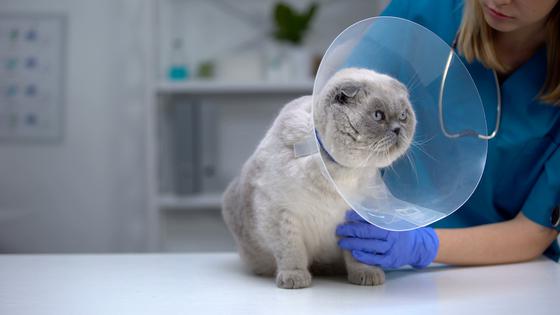My Pet World: New gene therapy offers hope for sterilizing female cats without surgery
Dear Cathy,
I am the birth control advocate. We have had birth control for the human species for over 50 years. Why don't we have effective non-surgical sterilization for our beloved dogs and cats that suffer so in most parts of the world?
— Francine, Killingworth, Connecticut
Dear Francine,
Researchers have been trying to develop a pill or injection to address pet reproduction for more than 20 years now. Dogs’ and cats’ reproductive cycles are uniquely different from humans, so coming up with a solution has been challenging. Some previous efforts have led to severe side effects.
A few weeks ago, though, I wrote about a pill called megestrol acetate that was used on community cats during the pandemic to halt their reproductive cycles. Since it took longer than usual to get a spay-neuter appointment, this became a short-term solution. But it wasn’t a long-term one. As with any “birth control,” the community cat caretakers would have had to give the community cats the medication indefinitely, which is not feasible in that scenario.
In early June 2023, however, there was some welcome news for birth control advocates. Researchers announced the development of a genetic treatment — a one-time injection that would halt ovulation in cats. It's considered safe and effective and lasts at least two years without side effects.
In the time it takes to trap one cat and take her to and from a clinic for her spay surgery, a single person could administer this injection to dozens, maybe even hundreds of cats. A quick internet search should reveal dozens of articles about this new treatment.
If results hold out, this injection could "make a huge impact in the cat and dog overpopulation crisis worldwide," says Joyce Briggs, president of the Alliance for Contraception for Cats and Dogs.
"However, the possibility of that being available to pet owners is still likely years away — given the necessities of regulatory approval designed to assure all new pet health products are safe and effective," Briggs added.
So, hope is on the horizon for an alternative to spay-neuter surgeries. Until then, this surgery is the only option to permanently spay-neuter our dogs and cats, and something I encourage everyone to do for their pets.
Dear Cathy,
My wife and I are owned by a 15-year-old Westie. We rescued Charlie when he was 10 and have given him the best veterinary care, including annual dental cleaning. He'll be 16 when the next cleaning is due, and that's the problem.
My wife and I are at odds over whether to have it done ever again. She says annual dental cleaning is essential, especially because we don't brush his teeth at home. (Brushing his teeth is not an option for us.) I say that the risk of death or kidney failure from general anesthesia is too high. (He'll be under for about an hour or longer if an extraction is required).
We went to see Charlie's long-time vet to discuss. Charlie's health for his age is good except for developing hip problems, and his blood work is normal except for an early-stage renal abnormality.
The vet said there's always a risk, even for younger dogs, but it does increase with age. If we're anxious about it, she won't oppose discontinuing the annual cleaning. The unfortunate bit is, what will affect Charlie's quality of life and death first – dental issues from no more cleaning or other problems? Any insights you can provide to help us make this decision is greatly appreciated.
— Tom, Yorktown, Virginia
Dear Tom,
Your long-timed vet gave you good advice. Why not just do it on an as-needed basis? You can monitor his dental health and schedule the teeth cleaning if things begin to go south. In the meantime, dental chews and dental additives — which can be added to his water — can help control tartar and plaque build-up. It might be all he needs to keep a healthy mouth in his golden years.
Dear Cathy,
Regarding the cats who refuse to use the litter box, I had a foster who not only didn't go outside the box, but also didn't go anywhere near it. She used rugs, blankets, and even an empty box. I used scented litter at the time. When I started using unscented litter, she began using her box again.
— Karen, Newington, Connecticut
Dear Karen,
It's always great when a simple change in litter solves the problem. Scented litter is solely for the benefit of humans, so they don't inhale an unpleasant smell when passing by the litter box. Cats, though, generally prefer unscented litter. Thanks for sharing.
========
(Cathy M. Rosenthal is a longtime animal advocate, author, columnist and pet expert who has more than 25 years in the animal welfare field. Send your pet questions, stories and tips to cathy@petpundit.com. Please include your name, city, and state. You can follow her @cathymrosenthal.)
©2023 Tribune Content Agency, LLC.
(c) 2023 DISTRIBUTED BY TRIBUNE MEDIA SERVICES, INC.










